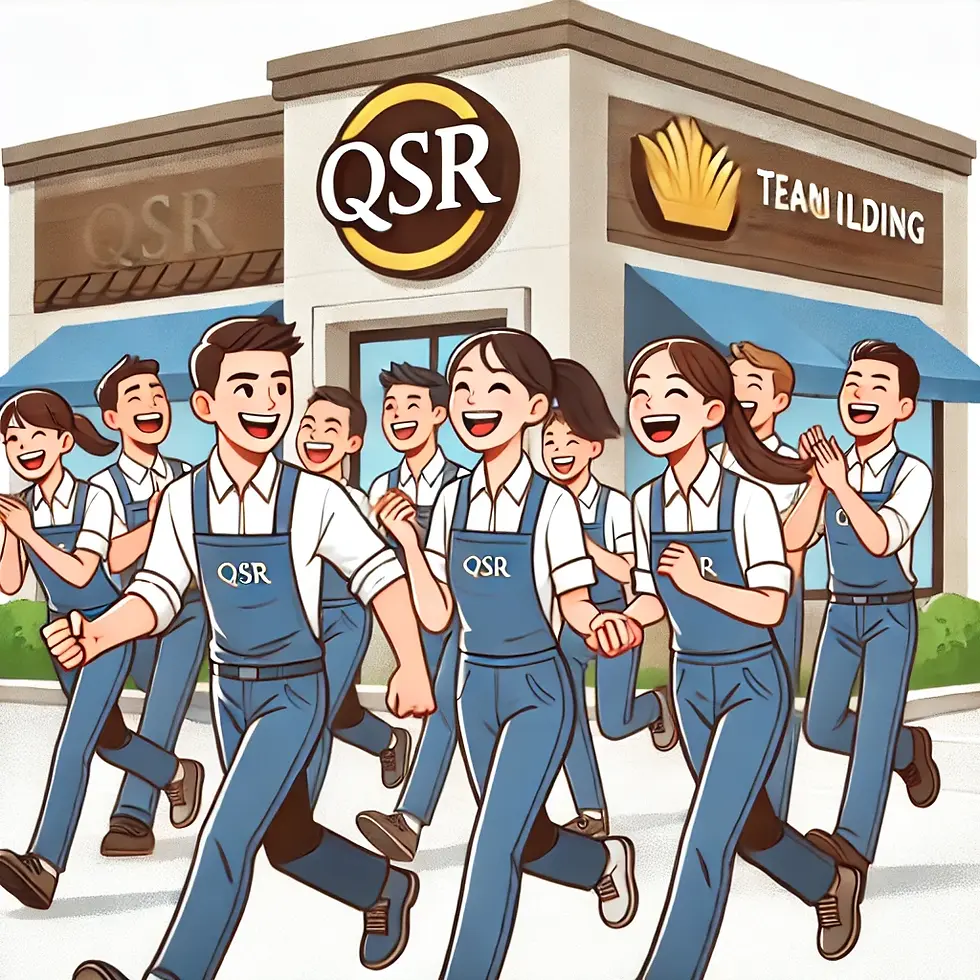
How Employee Engagement Boosts Productivity in Quick Service Restaurants
- Alexandrew Seale

- Jul 16, 2024
- 2 min read

Employee engagement is a critical factor in the success of any business, but it holds particular significance in the fast-paced environment of quick service restaurants (QSRs). High levels of engagement lead to increased productivity, better customer service, and ultimately, higher profitability. Let's delve into why employee engagement is so crucial in QSRs and explore actionable strategies to enhance it.

Why Employee Engagement Matters in QSRs
Increased Efficiency: Engaged employees are more motivated and committed to their work. In a QSR, this translates to quicker service, fewer mistakes, and a smoother operation overall.
Better Customer Service: Employees who feel valued and involved are more likely to go the extra mile to ensure customer satisfaction. This leads to repeat business and positive word-of-mouth.
Reduced Turnover: The QSR industry is notorious for high employee turnover. Engaged employees are less likely to leave, saving the business time and money spent on recruiting and training new staff.
Improved Teamwork: Engagement fosters a sense of community and teamwork. In a QSR, where employees must work closely together under pressure, strong team dynamics are essential.
Strategies to Improve Employee Engagement in QSRs

Provide Clear Communication and Expectations:
Regular Meetings: Hold brief but regular meetings to keep everyone informed and aligned with the restaurant’s goals.
Feedback Channels: Create open channels for employees to voice their opinions and concerns. This can be through suggestion boxes, regular one-on-one meetings, or anonymous surveys.
Offer Training and Development Opportunities:
Skill Development: Invest in training programs that help employees develop new skills and improve existing ones. This not only benefits the business but also shows employees that you are invested in their growth.
Career Pathways: Clearly outline potential career progression within the company. When employees see a future with the business, they are more likely to stay engaged.
Recognize and Reward Performance:
Recognition Programs: Implement programs to recognize employees for their hard work and achievements. This could be Employee of the Month awards, shout-outs during meetings, or even a simple thank you note.
Incentives: Offer tangible rewards such as bonuses, gift cards, or extra time off for employees who exceed performance expectations.
Foster a Positive Work Environment:
Team Building Activities: Organize events and activities that promote teamwork and camaraderie. This could be as simple as a staff lunch or a more elaborate team-building exercise.
Work-Life Balance: Respect employees’ time off and try to accommodate their scheduling needs as much as possible. A good work-life balance is key to maintaining high levels of engagement.
Empower Employees:
Decision-Making: Involve employees in decision-making processes, especially those that affect their work. This gives them a sense of ownership and responsibility.
Autonomy: Allow employees some degree of autonomy in how they perform their tasks. Trusting them to do their jobs well can significantly boost their engagement and productivity.

Conclusion
Employee engagement is not just a buzzword; it's a vital component of running a successful quick service restaurant. By implementing these strategies, you can create an environment where employees feel valued, motivated, and committed to delivering their best work. This, in turn, will lead to improved efficiency, better customer service, and a stronger bottom line.
Engaging your employees is an ongoing process that requires dedication and effort, but the rewards are well worth it. Start today by assessing your current engagement levels and taking steps to enhance them. Your employees, customers, and business will all benefit from the results.


Comments